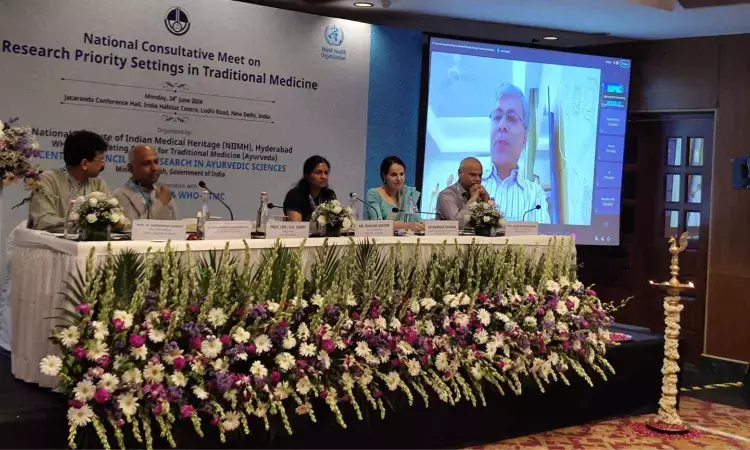- Home
- Medical news & Guidelines
- Anesthesiology
- Cardiology and CTVS
- Critical Care
- Dentistry
- Dermatology
- Diabetes and Endocrinology
- ENT
- Gastroenterology
- Medicine
- Nephrology
- Neurology
- Obstretics-Gynaecology
- Oncology
- Ophthalmology
- Orthopaedics
- Pediatrics-Neonatology
- Psychiatry
- Pulmonology
- Radiology
- Surgery
- Urology
- Laboratory Medicine
- Diet
- Nursing
- Paramedical
- Physiotherapy
- Health news
- Fact Check
- Bone Health Fact Check
- Brain Health Fact Check
- Cancer Related Fact Check
- Child Care Fact Check
- Dental and oral health fact check
- Diabetes and metabolic health fact check
- Diet and Nutrition Fact Check
- Eye and ENT Care Fact Check
- Fitness fact check
- Gut health fact check
- Heart health fact check
- Kidney health fact check
- Medical education fact check
- Men's health fact check
- Respiratory fact check
- Skin and hair care fact check
- Vaccine and Immunization fact check
- Women's health fact check
- AYUSH
- State News
- Andaman and Nicobar Islands
- Andhra Pradesh
- Arunachal Pradesh
- Assam
- Bihar
- Chandigarh
- Chattisgarh
- Dadra and Nagar Haveli
- Daman and Diu
- Delhi
- Goa
- Gujarat
- Haryana
- Himachal Pradesh
- Jammu & Kashmir
- Jharkhand
- Karnataka
- Kerala
- Ladakh
- Lakshadweep
- Madhya Pradesh
- Maharashtra
- Manipur
- Meghalaya
- Mizoram
- Nagaland
- Odisha
- Puducherry
- Punjab
- Rajasthan
- Sikkim
- Tamil Nadu
- Telangana
- Tripura
- Uttar Pradesh
- Uttrakhand
- West Bengal
- Medical Education
- Industry
National Consultative Meet: Central Council for Research in Ayurvedic Sciences inks pact with Shri Krishna Ayush University, Dabur

New Delhi: Fostering a pioneering effort in aligning traditional medicine research with global standards and priorities the Central Council for Research in Ayurvedic Sciences (CCRAS), an apex autonomous organization under the Ministry of Ayush, has signed two MoU's with Shri Krishna Ayush University, Kurukshetra & Dabur, a leading Ayurvedic company in India.
CCRAS also launched its new and updated website.
The first of its kind consultative meet brought together representatives from diverse domains of Traditional Medicine (TM) in India, including policymakers, academic institutions, researchers, patients, and industry stakeholders. The aim is to identify and prioritize key research areas across various traditional medicine systems such as Ayurveda, Siddha, Unani, and Homeopathy.
These announcements were made during the one-day National Consultative Meet on "Research Priority Settings in Traditional Medicine" on June 24, 2024, at the India Habitat Center, New Delhi, held in collaboration with the WHO-SEARO (World Health Organisation – South East Asia Region office) office and WHO-GTMC (World Health Organisation – Global Traditional Medicine Centre)
On this occasion,Vaidya, Secretary, Ministry of Ayush Rajesh Kotecha said, “The objective is to ensure effective utilization of funds and address critical areas of need within traditional medicine, including medicinal plant research, quality, safety, and efficacy studies, pre-clinical validations, rational use of traditional medicines, clinical trial monitoring, medical anthropology, and the digitalization of ancient medical literature and thereby supporting its global acceptance and integration”.
Director General, CCRAS, Prof. (Vaidya) Rabinarayan Acharya, said, “We wanted to chart a research roadmap for the next decade and lay the groundwork for a decade-long research strategy in traditional medicine and align efforts with WHO guidelines. These two Mou’s with
Dabur & Sri Krishna AYUSH University is a heathy start in this direction.
Vice Chancellor of Sri Krishna Ayush University, Kurukshetra, Haryana, Prof. Kartar Singh Dhiman, emphasized the importance of MoU and under its ambit both parties will look at fostering the path for academic and research collaborations that provides opportunity to researchers and scientists for exchange of ideas through workshops, seminars. PhD Studies of CCRAS scientists.
Setting research priorities is a critical endeavor that guides the allocation of resources, shapes scientific agendas, and influences the direction of innovation and discovery. Setting research priorities in traditional medicine is need of the hour as increase in demand and the global accessibility and acceptability of systems fosters the need for same. The identified areas will shape the roadmap of policies for traditional medicine at regional or global level.
Around 150 stakeholders representing Ministry of Ayush, NITI Aayog, Heads of Research Councils from different streams of traditional medicine and homeopathy in India, Vice-chancellors of various reputed universities, Directors of National Institutes under ministry of Ayush, ICMR- NITM, CSIR, RIS-FITM, JNU New Delhi, WHO-SEARO, WHO-GTMC, policy makers, pharmacy representatives and media persons.
The Round table discussions among Expert working groups shaped the prioritization exercise followed by a plenary session including the way forward. Dr. G P Prasad, Assistant Director (In-charge) of National Institute of Indian Medical heritage (NIIMH), a recently designated WHO Collaborating Center for Traditional Medicine in India and a co-organizer of this event points out that prioritization fosters the preservation and documentation of traditional knowledge, protecting cultural heritage and biodiversity associated with medicinal plants and indigenous healing practices.
Kajal Rajput joined Medical Dialogues as an Correspondent for the Latest Health News Section in 2019. She holds a Bachelor's degree in Arts from University of Delhi. She manly covers all the updates in health news, hospitals, doctors news, government policies and Health Ministry. She can be contacted at editorial@medicaldialogues.in Contact no. 011-43720751


